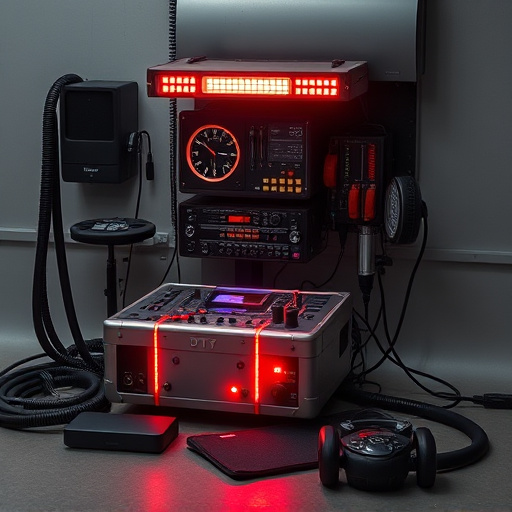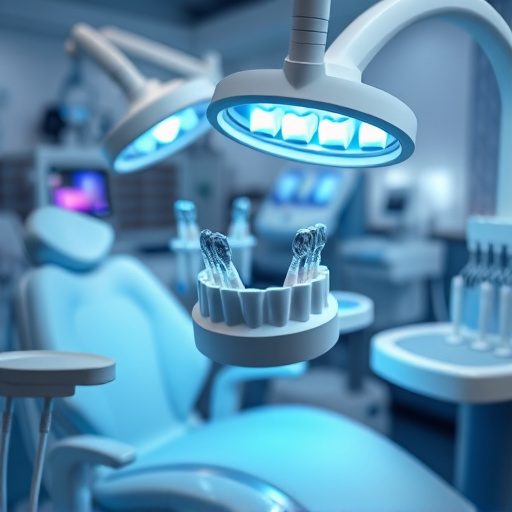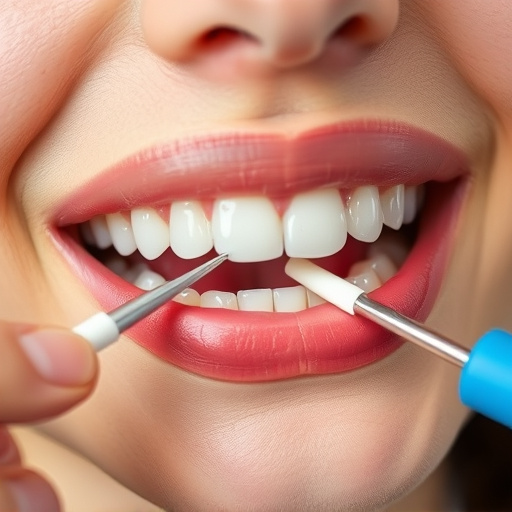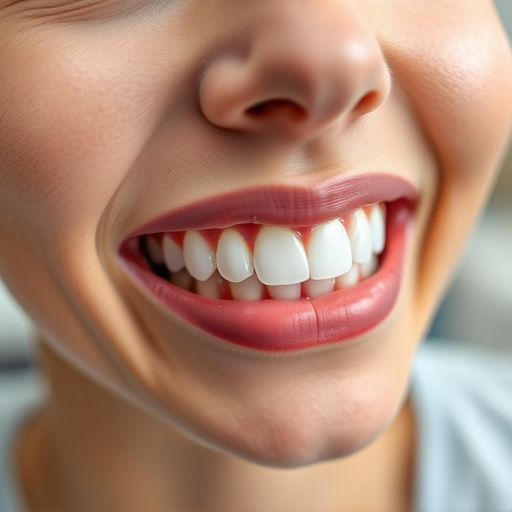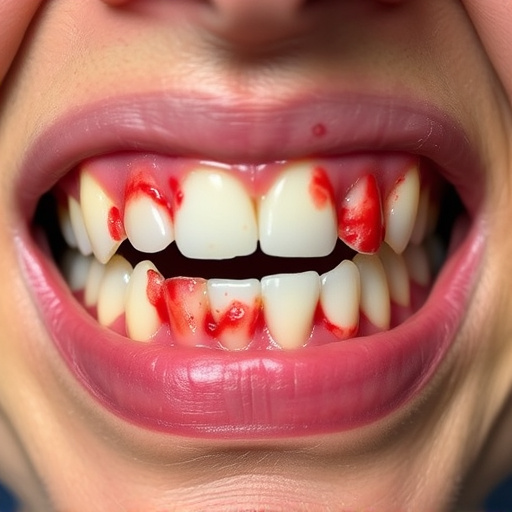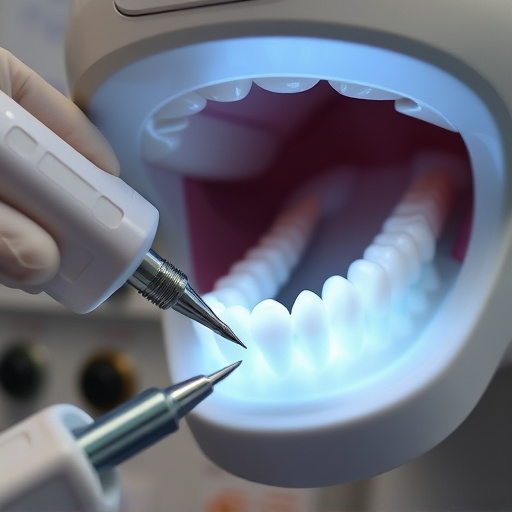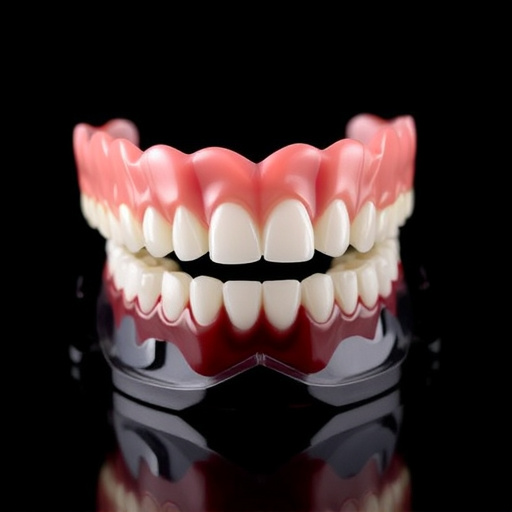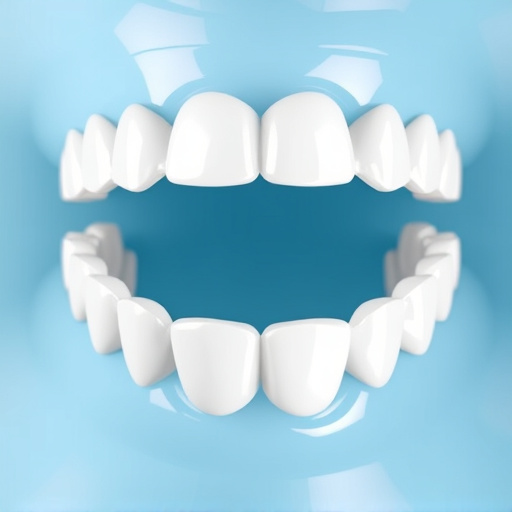Sleep apnea and teeth grinding (bruxism) are linked, with up to 70% of sleep apnea sufferers grinding their teeth. Teeth grinding exacerbates sleep apnea by narrowing the upper airway. Effective teeth grinding treatment involves managing both conditions simultaneously through behavioral changes, oral appliances, dental bonding, clear aligners, and wisdom tooth removal if needed. Regular dental exams and lifestyle adjustments are also crucial.
Sleep apnea, a common yet often overlooked condition, disrupts sleep patterns, leading to potential oral health issues like teeth grinding (bruxism). This connection between sleep apnea and bruxism highlights the importance of addressing both for comprehensive well-being. In this article, we explore understanding sleep apnea and its impact, delve into the link with teeth grinding, and present effective treatments aimed at providing relief from this disruptive condition, focusing on teeth grinding treatment solutions.
- Understanding Sleep Apnea and Its Impact
- The Connection Between Sleep Apnea and Teeth Grinding
- Effective Treatments for Teeth Grinding Relief
Understanding Sleep Apnea and Its Impact
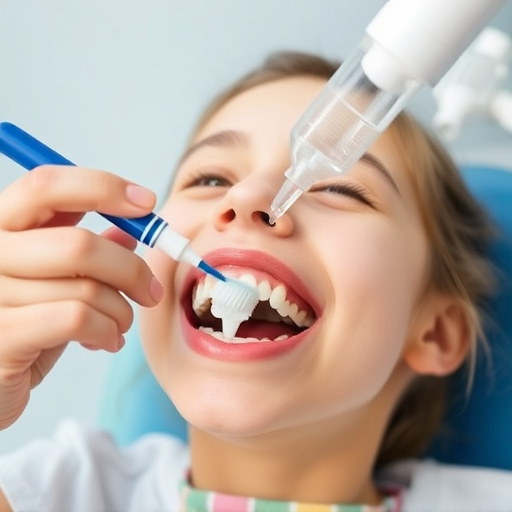
Sleep apnea is a common yet often undiagnosed sleep disorder characterized by pauses in breathing during sleep, leading to reduced oxygen levels and disrupted sleep patterns. This condition can have far-reaching consequences for overall health, including an increased risk of cardiovascular disease, diabetes, and cognitive impairment. One lesser-known but significant impact of sleep apnea is its association with teeth grinding, a behavioral disorder that occurs primarily during sleep. Teeth grinding, or bruxism, involves clenching or grinding the teeth, often unconsciously, causing wear and tear on the dental enamel.
Understanding the link between sleep apnea and teeth grinding is crucial for effective treatment. Research suggests that up to 70% of individuals with sleep apnea also exhibit signs of bruxism. The mechanical stress exerted by grinding teeth can exacerbate existing sleep apnea by further compromising the upper airway, creating a vicious cycle. This complicates the management of both conditions, as standard teeth grinding treatments, such as dental bonding or fillings, might not address the underlying sleep disorder. Therefore, comprehensive treatment for sleep apnea and its associated teeth grinding involves managing both conditions simultaneously, often through a combination of behavioral modifications, oral appliances, and in severe cases, cosmetic dentistry.
The Connection Between Sleep Apnea and Teeth Grinding
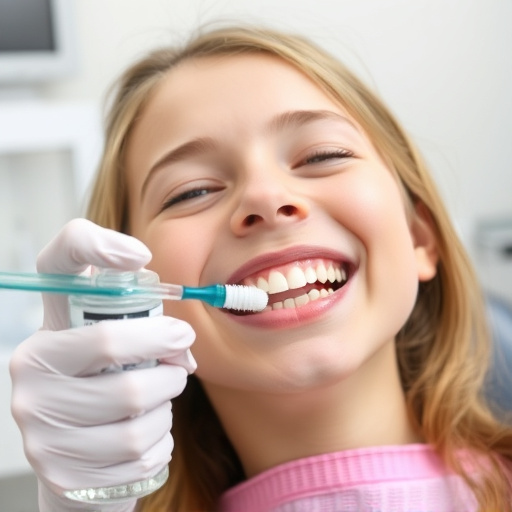
The connection between sleep apnea and teeth grinding is a significant topic within the field of oral health. Both conditions are often intertwined, with sleep apnea being a potential trigger for teeth grinding (bruxism). During sleep, when individuals experience apneas—periods of paused breathing—the brain sends signals to activate jaw muscles in an attempt to keep the airway open. This muscle activation can lead to conscious or subconscious teeth grinding as the person tries to breathe and clear the airways.
Over time, this repetitive grinding can result in significant dental issues. It may contribute to tooth wear, chipping, and sensitivity, requiring treatments like dental bonding or clear aligners for corrective measures. Preventive dentistry plays a crucial role here, focusing on identifying and managing sleep apnea and bruxism early to mitigate potential long-term effects on oral health.
Effective Treatments for Teeth Grinding Relief
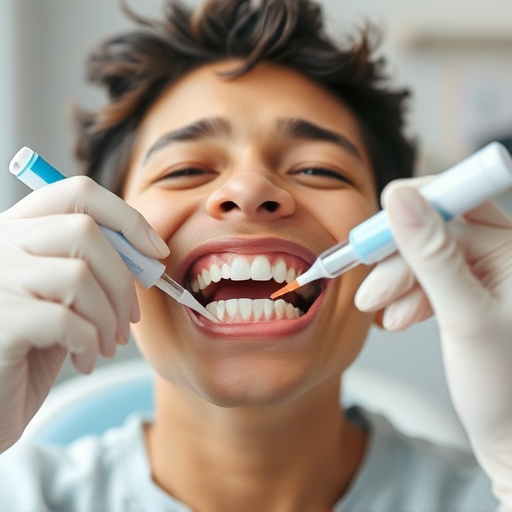
Teeth grinding, or bruxism, is a common condition that can lead to significant dental issues if left untreated. Fortunately, there are several effective teeth grinding treatment options available to alleviate this discomforting habit and its consequences. One of the primary approaches involves wearing a mouthguard during sleep, which helps prevent tooth wear and tear by keeping jaws in a relaxed position. Custom-fitted oral devices, such as bite plates or splints, can also be recommended by your family dentistry professional to manage teeth grinding.
In some cases, wisdom tooth removal may be suggested if impacted or poorly positioned molars contribute to bruxism. Regular oral exams play a crucial role in monitoring the condition and early detection of any associated problems. Lifestyle changes, such as stress management techniques and jaw exercises, can also help reduce teeth grinding. Additionally, certain medications or behavioral therapies might be prescribed by your dentist to further aid in managing this condition effectively.
Sleep apnea and teeth grinding are interlinked conditions that can significantly impact overall health. Understanding their connection is key to managing both effectively. By addressing sleep apnea through appropriate treatments, such as continuous positive airway pressure (CPAP) therapy or oral appliances, teeth grinding can be alleviated. These treatments not only improve sleep quality but also provide long-term relief from the destructive effects of chronic teeth grinding. For those seeking teeth grinding treatment, targeting the root cause of sleep apnea offers a comprehensive and lasting solution.




